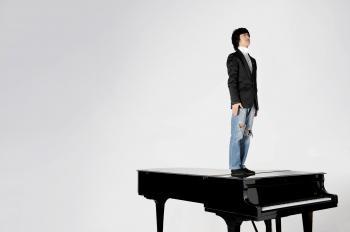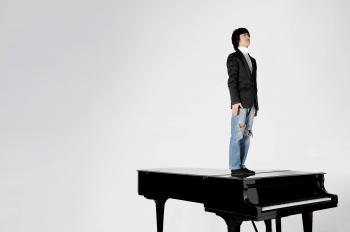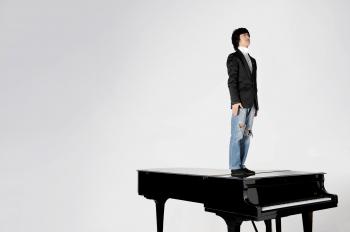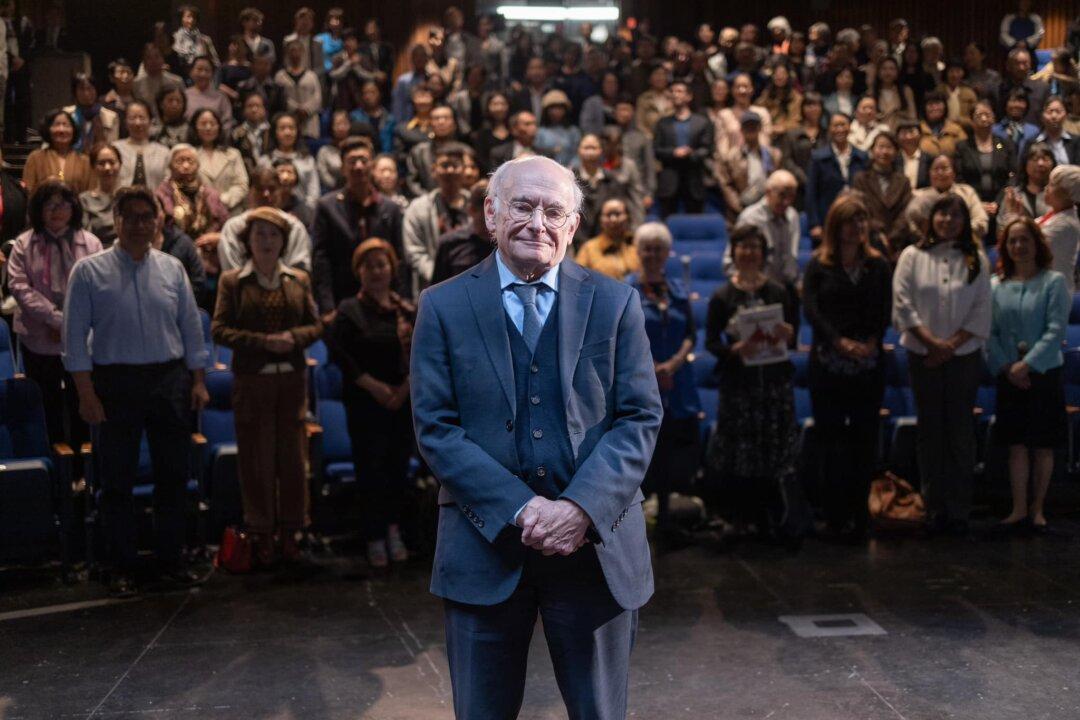In the picture, a young man stands on top of a grand piano with ripped jeans, frowning at the ceiling. At first glance, this is a rebellious teenager whose musical tastes most likely lie in punk, rock or techno.
But don’t be fooled by appearances. This is Haiou Zhang, one of the most talented classical pianists today whose brilliant performances have evoked poetry and standing ovations from veteran concertgoers.
This and other pictures are displayed on Zhang’s website. He hopes more young people will become interested in classical music, an important issue the classical music community is facing in the 21st century.
At just 25, Zhang has performed with some of the world’s most celebrated orchestras and sold more than 30,000 CDs in his native China. He is currently performing in a six-city concert tour with the famed Slovak Sinfonietta in its Canadian debut.
Many young people would prefer to go to discos and drink rather than spend that money on a concert, explains Zhang. But that doesn’t mean young people don’t like classical music.
“I went to some high schools and some colleges. I went there to talk to them and introduce them to some really good music and they were totally interested. They were sitting there listening to Claude Debussy and French impressionists so quietly. I didn’t expect that at all,” he said, adding that young people need to be led to good music.
Zhang calls classical music “pure gold.”
“Even I as a professional musician, every day when I get up and switch on the iPod to listen to music, it makes me feel really good, and feel quite a lot of power to begin my day,” he said.
While some may think that classical music is outdated, Zhang points out that the perception a few hundred years ago was very different.
“At that time, this was pop music, it was rock music. Mozart was the Michael Jackson of his time,” he said.
What modern people consider classical music now may have been revolutionary back then. Zhang referred to the 2nd movement of Beethoven’s last piano sonata, opus 111, calling the rhythm similar to Boogie-woogie, a musical style popular in the 1930s and 40s.
“When audiences at that time (200 years ago) heard this kind of Boogie-woogie rhythm, they were totally shocked, they were blown away, and this is the pop music at that time, and this music led us to the future,” he said.







